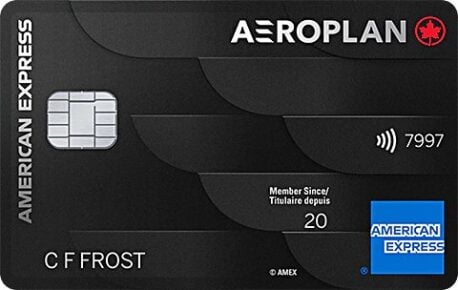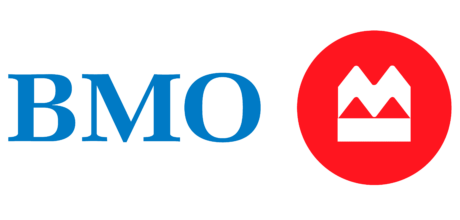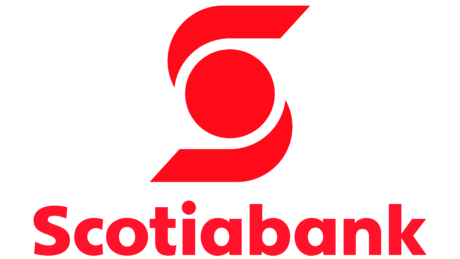Nerdy Insight: Canada’s best variable mortgage rates aren’t any better in November than they were in October. They won’t improve until the Bank of Canada begins reducing its overnight rate. The Bank’s next rate decision is December 6. Inflation and employment are starting to trend downward, but it’s unlikely that the Bank will touch the overnight rate until 2024.
Mortgage Type
Purchase Price
Down Payment
Rate Type
Province
Mortgage Term
Lender |
Lender Highlights |
Rate |
Payment |
Term |
|
|---|---|---|---|---|---|

Equitable Bank |
|
6.10%
Variable |
$2,927
Monthly |
5 yrs.
Term |
Explore Now |

MCAN |
|
6.20%
Variable |
$2,955
Monthly |
5 yrs.
Term |
Explore Now |

Radius Financial |
|
6.20%
Variable |
$2,955
Monthly |
5 yrs.
Term |
Explore Now |

Equitable Bank |
|
6.30%
Variable |
$2,982
Monthly |
5 yrs.
Term |
Explore Now |

First National |
|
6.30%
Variable |
$2,982
Monthly |
5 yrs.
Term |
Explore Now |

Home Trust |
|
6.30%
Variable |
$2,982
Monthly |
5 yrs.
Term |
Explore Now |
Disclaimer: These rates do not include taxes, fees, and insurance. Your actual rate and loan terms will be determined by the partner’s assessment of your creditworthiness and other factors. Any potential savings figures are estimates based on the information provided by you and our advertising partners. Mortgage Brokerage Licensed in ON #12984, BC #X301004, MB and AB. Homewise can pursue mortgage brokering activity in SK, NL, NS and NB.
Data source:


Best mortgage rates
Find the best mortgage rates in Canada.
Compare customized mortgage rates from Canada’s best lenders and brokers for free – all in one place
Best 5-year variable rates from Canada’s Big 6 Banks
Rates updated: November 11, 2023
Bank |
5-Yr Variable Rate (Closed) |
5-Yr Variable Rate (Open) |
|---|---|---|
| 7.20% | 8.90% | |
| 7.20% | 10.50% | |
| 7.20% | N/A | |
| 7.30% | 10.50% | |
| 7.65% | 10.40% | |
| 7.35% | 8.35% |
Posted rates for closed mortgages with amortization under 25 years. Data source: Canada's major banks
If you’d like to take a look at the full list of products and rates on offer at Canada’s Big Six banks, look no further:
- BMO mortgage rates.
- CIBC mortgage rates.
- National Bank mortgage rates.
- RBC mortgage rates.
- Scotiabank mortgage rates.
- TD mortgage rates.
Canadian variable mortgage rate update: November 2023
Because the Bank of Canada held its overnight rate at 5% on October 25, there has been no downward pressure on variable mortgage rates in November. Variable rates remain well above 6% and still carry a faint risk of rising depending on what direction inflation moves in the coming weeks.
With the economy slowing, it’s possible that the Bank’s rate increases are finally having their intended effect. That could mean we’ve seen the last variable rate increase for some time. It could still be 2024 before the Bank of Canada decides to adjust the overnight rate, and when it does, expect a minimal decline.
The Financial Consumer Agency of Canada recently released a set of new guidelines for the country’s mortgage lenders to follow when dealing with borrowers whose finances have been pushed to the breaking point by higher interest rates. If you’re having trouble making your mortgage payments, or are having to make uncomfortable decisions to stay on top of your mortgage, reach out to your lender or mortgage broker immediately to find out what assistance or payment flexibility might be available to you.
Variable mortgage rates: A 12-month snapshot
Calculators to inform your next mortgage decision
Mortgage payment calculator ↗
Estimate your monthly mortgage payments.
Mortgage affordability calculator ↗
Estimate how much house you can afford.
Mortgage closing costs calculator ↗
Create a home buying budget by estimating your closing costs.
Should you choose a variable mortgage rate?
Is it a good idea to get a variable-rate mortgage now?
The Bank of Canada might be finished with its campaign of overnight rate increases, but that doesn’t mean variable mortgage rates will be falling anytime soon. Variable rates aren’t likely to decrease until inflation is within the Bank’s target range of 2-3%. Inflation was 3.8% in September, only slightly lower than it was in August.
No one really knows when — or if — variable rates will start falling. Assuming that they’ll fall quickly enough to save you money is a bit of a gamble. Opting for a variable rate now might also mean locking in at a rate higher than what’s available on three- or five-year fixed-rate mortgages.
Pros and cons of variable-rate mortgages
Pros:
- Lower rates. Historically, variable rates have been lower than fixed mortgage rates.
- Lower prepayment penalties. Compared to fixed-rate mortgages, variable–rate mortgages charge lower penalties if you prepay too much of your mortgage or break your mortgage contract in some other way.
- Switchability. If variable mortgage rates are rising and you’re afraid of being able to maintain your payment schedule, you may be able to switch to a fixed rate of interest for the remainder of your mortgage term.
Cons:
- Unpredictability. If variable mortgage rates spike, your mortgage could become unaffordable.
- Smaller prepayment penalties still sting. If you have to break a variable-rate mortgage because of financial difficulties, paying a penalty equal to three months’ interest could be painful.
- No portability. Your lender may not allow you to port a variable-rate mortgage unless you convert it to a fixed-rate mortgage. When making the switch, you’ll be subject to your lender’s current mortgage rates, which may be higher than you can afford.
Variable mortgage rates: Facts and data
Unlike fixed mortgage rates, which don’t change for the entirety of a mortgage term, variable rates can rise or fall several times between when you first get your mortgage and when you renew it. That means a variable-rate mortgage can end up being more or less expensive than you originally anticipated.
That uncertainty creates risk for borrowers, which is why variable mortgage rates have typically been lower than fixed rates. In times of high inflation, however, variable rates can surge past fixed rates.
When variable rates were at historic lows during the COVID-19 pandemic, the demand for variable-rate mortgages skyrocketed. Variable-rate mortgages accounted for over half of the home loans originated by Canadian lenders from August through April 2021. In January 2023, after variable rates had risen 400 basis points in the previous 10 months, variable-rate mortgages made up less than 20% of new mortgages.
From January to May 2022, Canadians took out an average of $2.4 billion in insured variable-rate mortgages each month. From January to May 2023, that figure plummeted to $295 million per month as buyers abandoned variable rates for lower, more stable fixed rates.
What’s a good variable mortgage rate?
Short answer: A “good” variable mortgage rate is the lowest rate you can qualify for on the specific loan product that best fits your finances.
If you’re curious about how variable rates have trended over time, take a look at the following Statistics Canada data from the past 10 years, which tracks the average variable mortgage rate on insured mortgages:
- August 2013: 3.13%.
- August 2014: 2.85%.
- August 2015: 2.28%.
- August 2016: 2.75%.
- August 2017: 2.67%.
- August 2018: 3.04%
- August 2019: 4.15%.
- August 2020: 2.22%.
- August 2021: 1.54%.
- August 2022: 4.19%.
- August 2023: 7.56%.
If you compared variable mortgage rates in August 2019, even your best options weren’t all that attractive. But in contrast to where variable rates are in 2023, those 2019 rates look pretty sweet.
Variable mortgage rate forecast
Predicting variable mortgage rates
If you want to get a sense of where variable mortgage rates might be heading, keep an eye on Canada’s inflation rate.
If inflation is trending upward, or the Bank of Canada is concerned that inflation may increase, you can generally expect the Bank to raise its overnight rate. When that happens, variable mortgage rates also increase. If inflation is declining, the Bank may choose to lower the overnight rate, which will result in lower variable rates.
The economy can be a tricky thing to read, and forecasts are frequently wrong, so never assume you know exactly where rates are heading.
Will variable mortgage rates come down in 2023?
Don’t expect variable mortgage rates to decline in the final months of 2023.
After annual inflation ticked down to 3.8% in September, Bank of Canada held its overnight rate at 5% on October 25. But the Bank is still assessing its battle with inflation and the overall state of the economy, and will be wary about reducing the overnight rate too soon. Until the overnight rate comes down, variable rates will stay elevated.
The Bank of Canada only has one more rate decision scheduled for 2023. Unless inflation takes a miraculous freefall, the Bank is unlikely to touch the overnight rate before next year.
Will variable mortgage rates come down in 2024?
Variable rates could remain high for much of 2024, too.
The Bank of Canada has said that it expects inflation to be back in the 2-3% range by mid-2025. If a reliable downward trend in inflation occurs in 2024, and the Bank is confident that reducing the overnight rate won’t lead to inflation rising again, you might see variable rates come down in the second half of 2024.
What’s affecting variable mortgage rates?
Variable mortgage rates are shaped by three closely related factors: inflation, the Bank of Canada’s overnight rate and the prime rate offered by banks and other lenders.
Variable mortgage rates and inflation
You’ll typically see variable mortgage rates increase when the Bank of Canada is worried that inflation is rising too quickly. When inflation flared up after the COVID-19 pandemic, for example, it didn’t take long for variable mortgage rates to follow suit.
Now, the Bank of Canada doesn’t look at rising inflation and think, “Let’s cool the economy by cranking up variable mortgage rates.” Instead, it tweaks its overnight lending rate, which then impacts lenders’ prime rates and the variable rates they offer borrowers.
Variable mortgage rates and the Bank of Canada’s overnight rate
The Bank of Canada’s overnight rate is the interest rate banks use when they loan money to each other during daily banking operations. The Bank also uses the overnight rate to guide the economy and tamp down inflation.
If inflation is rising, the Bank of Canada will increase the overnight rate in an attempt to slow the economy. If the economy is lagging, the overnight rate is lowered to encourage borrowing and spending.
When the overnight rate is adjusted, lenders apply the same change to their prime rates, which variable mortgage rates are based on.
Variable mortgage rates and a lender’s prime rate
A bank’s prime rate is the interest rate it offers its most important customers. It’s also used as a base for the interest rates a financial institution attaches to variable-rate mortgages and lines of credit.
The relationship between the overnight rate and prime rate is important if you have a variable-rate mortgage. When the Bank of Canada ups the overnight rate, prime rates and variable mortgage rates also increase.
Is a variable mortgage rate right for you?
Unlike a five-year fixed mortgage rate, which remains static for the duration of the mortgage term, variable-rate mortgages are a bit of a gamble. Your rate might decline during the term, but it might also increase sharply. You shouldn’t, however, focus solely on the rate when considering a variable-rate mortgage. Keep the following in mind, too:
- Portability. If you sell your home and buy a new one during your mortgage term, your lender may allow you to port your current mortgage to your new property. This can allow you to break your mortgage without paying penalties. If you have a variable-rate mortgage, you might only be able to port if you convert it to a fixed rate first.
- Prepayment options. Double-check the conditions of any variable-rate mortgage offer to see how much you can increase your monthly payment or how large a lump-sum payment you can make as a way of paying off your mortgage faster.
- Penalties. Breaking or prepaying too much of a variable-rate mortgage can result in prepayment penalties equal to three months’ interest. Make sure you understand how much you might have to pay if you break your mortgage unexpectedly.
Another aspect of variable mortgage rates to consider is whether you choose a fixed or variable payment option.
With a fixed-payment variable-rate mortgage, the size of your mortgage payment doesn’t change when your rate is adjusted. Instead, the percentage of your payment that goes toward interest either increases or decreases, which also affects how much is applied to the principal.
With a variable-payment variable-rate mortgage, the actual amount of your monthly mortgage payment can rise or fall, making this mortgage type particularly risky in a rising-rate environment.
How to get the lowest variable mortgage rate
Though lenders may have different mortgage qualification criteria, there are ways to encourage them to offer you the best mortgage rates.
Boost your credit score
The best mortgage rates generally go to creditworthy borrowers, meaning those with a solid credit score of 680 and higher. Lenders perceive borrowers with high credit scores as lower risk.
You’re still likely to be considered for a mortgage with a score of 600 and above, you just may not necessarily be offered the best rates.
Maintain low debt service ratios
Lenders will take a careful look at two debt service ratios when deciding whether or not to give someone a mortgage with the best rates: Gross Debt Service (GDS) and Total Debt Service (TDS) ratios.
Your GDS ratio is what percent of your pre-tax household income goes towards housing costs like your mortgage payments, utilities and property taxes. It should not exceed 39% of your yearly gross income.
Your TDS ratio includes your GDS, as well as any other debts you are carrying (like student loans and credit card debt). Your TDS ratio should not be more than 44% of your pre-tax household income. The lower your ratios are, the better chance you have of getting the most favourable mortgage rates.
Increase your down payment
Saving a down payment isn’t easy, but amassing a larger one can work wonders for your mortgage.
You’ll borrow less, which will decrease your overall mortgage costs. Proving you can save money and prioritize homeownership might signal to lenders that you’re worthy of a lower interest rate.
Making a significant down payment of 20% or more will free you from having to buy mortgage default insurance, too, an ongoing cost that gets added to your monthly mortgage payments. Some lenders, however, charge higher mortgage rates on uninsured mortgages.
Compare mortgage offers from different lenders
Canada’s mortgage market has a healthy amount of choice. Taking advantage of the options out there — the Big Six banks, alternative lenders, private lenders and trust companies — and comparing the rates and mortgage products available can help you find a better deal.
Comparing mortgage offers can be daunting. In addition to evaluating various interest rates and their effect on your home buying budget, you’ll also have to look at each product’s terms and conditions to find the one that best suits your needs.
Working with a mortgage broker can make these comparisons more manageable. The advice you receive can bring more clarity to your final mortgage decision, too.
Negotiate
If you ran a bank or direct lending business, would you offer your mortgage customers the lowest rate possible right off the bat? Not if you wanted to stay in business very long. But if you set your rates higher than necessary, and allow your clients to negotiate a better deal for themselves, everybody wins.
You should always try to negotiate a lower rate with your chosen lender. Use the information you gathered when comparing rates to show them what else is available — and where you might take your business.
Just remember to be reasonable. If your mortgage was challenging because you have negative credit events in your past or high debt service ratios, there’s only so much a lender can do. And if negotiating is something you value but aren’t comfortable doing yourself, consider working with a mortgage broker.
Alternatives to variable-rate mortgages
If you aren’t comfortable with the risks associated with variable mortgage rates, there are other options to consider.
Choose a fixed rate
Even though fixed mortgage rates are typically higher than variable rates, you’re purchasing peace of mind in exchange for the additional interest costs.
With a fixed-rate mortgage, your interest rate doesn’t change for the length of your mortgage term. If you opted for a three-year fixed mortgage rate in 2023, for example, your payments would stay the same until 2026.
Even if rates go through the roof, you won’t have to worry about your mortgage payment being affected — until you renew your mortgage.
Choose a hybrid mortgage
A hybrid mortgage contains multiple mortgage types rolled into a single mortgage product. It might include a variable-rate component, a fixed-rate component and a line of credit. Because of the moving parts involved, hybrid mortgages may be better for experienced borrowers.
Frequently asked questions about variable mortgage rates
Variable mortgage rates can’t decrease until inflation is near 2% and the Bank of Canada lowers its overnight rate. The Bank anticipates that this might happen in mid-2025. Until inflation declines, variable mortgage rates will stay elevated.
Variable mortgage rates are currently sky-high. The posted rates on closed, five-year variable-rate mortgages at Canada’s Big Six banks, for example, are all near or above 7%.

Current Mortgage Rates in Canada
Compare current mortgage rates to find the lowest mortgage rate for your home buying needs.

Mortgage Affordability Calculator: How Much Mortgage Can I Afford?
Knowing how much house you can afford sets realistic home buying expectations — and can show you where your finances might need a little help.

Understanding B Lender Mortgages
If the chartered banks, or A lenders, turn you down for a mortgage, there’s an entire industry of alternative, or B, lenders you can turn to for your financing needs.

Canada Closing Costs Calculator
Create a more accurate home buying budget by estimating your closing costs — the one-time, upfront expenses you’ll pay before receiving the keys.










